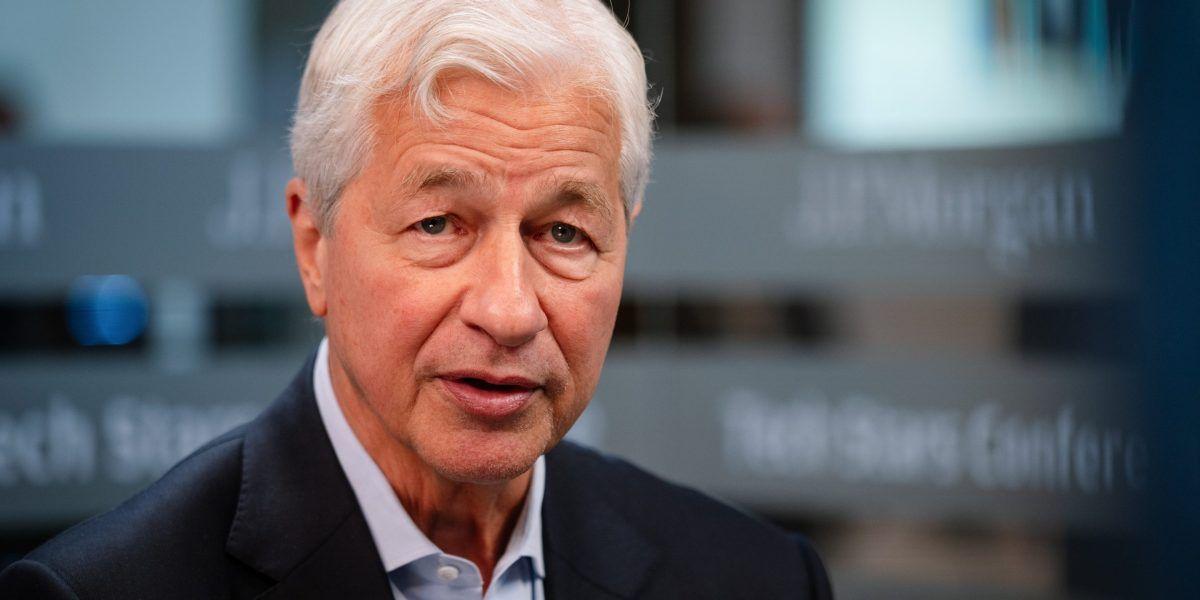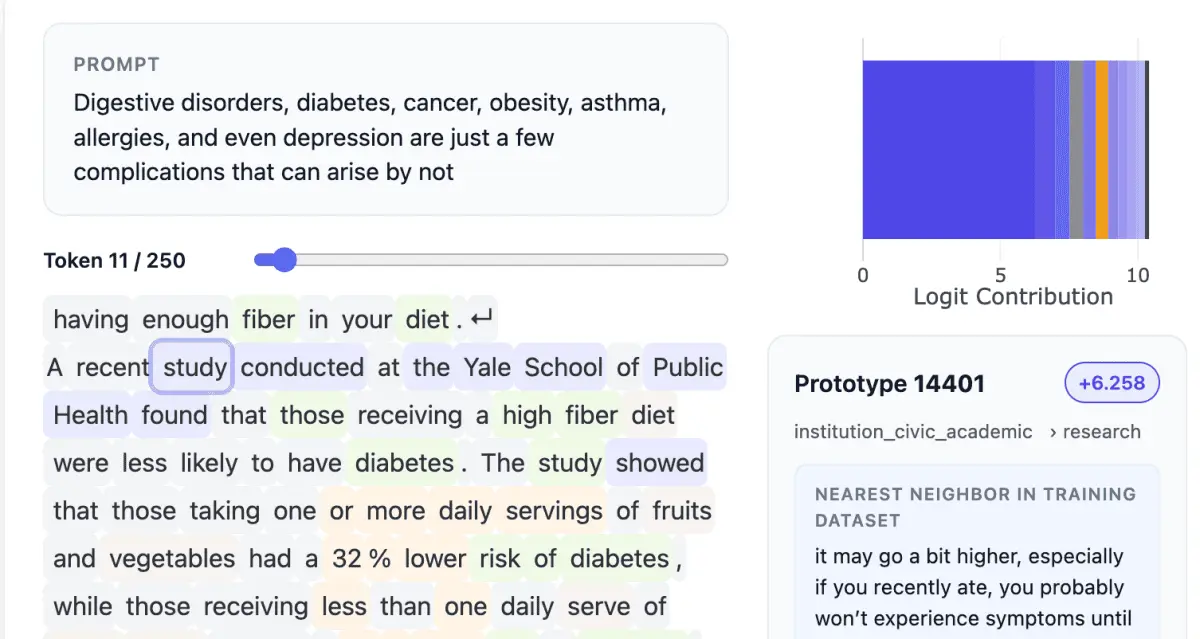JPMorgan CEO Jamie Dimon Envisions AI-Driven Future with Shorter Workweeks and Longer Lifespans
5 Sources
5 Sources
[1]
Our Kids Will 'Live To 100, Not Have Cancer,' And Work Only 3.5 Days A Week? Jamie Dimon Thinks So. Here's Why - JPMorgan Chase (NYSE:JPM)
JPMorgan Chase JPM CEO Jamie Dimon is convinced that artificial intelligence (AI) will improve our world. According to him, our children will live to be 100 years old, be free from illnesses like cancer and have shorter workweeks. Don't Miss: Can you guess how many Americans successfully retire with $1,000,000 saved? The percentage may shock you. Warren Buffett once said, "If you don't find a way to make money while you sleep, you will work until you die." Here's how you can earn passive income with just $100. The Upside of AI In an interview with Bloomberg, Dimon painted an optimistic picture of what AI could bring. He thinks the average workweek could be reduced from five to just three and a half days due to technological developments. At JPMorgan, AI is already increasing efficiency by assisting with everything from trading to research and he anticipates this trend will continue across industries. Future generations, he says, will have more time to enjoy life outside of work as AI takes care of tedious jobs. But Dimon goes beyond work-life balance and claims AI and other technological advances could dramatically extend our life spans. He talks about a world where our kids could live to 100 and avoid diseases like cancer, thanks to rapid medical advancements driven by AI. See Also: The average American couple has saved this much money for retirement -- How do you compare? JPMorgan isn't sitting on the sidelines watching AI happen - it's leading the charge. Currently, the bank employs 2,000 people engaged in 400 distinct AI initiatives and hundreds more are already using AI technologies daily. At the organization, AI is already significantly impacting everything from payment optimization to fraud reduction. AI is "critical" to JPMorgan's success since it helps them increase productivity and customer satisfaction and even summarizes books for him when he doesn't have time to read. What About Job Losses? Most people's big concern about AI is job loss - if machines are doing more work, what happens to us? Dimon's take is that while some jobs will inevitably be replaced, AI will create new opportunities. He compares it to past technological advances like the steam engine or the internet, which eliminated some roles but opened up entirely new ones. He believes AI could be a "super assistant" that boosts productivity rather than taking over completely. "People have to take a deep breath," Dimon said. "Technology has always replaced jobs." However, he is also clear about the need to support people whose jobs are disrupted by AI. He points out that JPMorgan is committed to retraining and redeploying employees whose roles are affected. Rather than simply accepting job losses, he believes companies should help their staff adapt and find new opportunities. Read Next: Studies show 50% of consumers think Financial Advisors cost much more than they do -- to debunk this, this company provides matching for free and a complimentary first call with the matched advisor. Many are using this retirement income calculator to check if they're on pace -- here's a breakdown on what's behind this formula. Market News and Data brought to you by Benzinga APIs
[2]
Work 3.5 days a week and lifespan of 100 years a reality soon? JPMorgan CEO Jamie Dimon envisions a future
Jamie Dimon, JPMorgan Chase CEO, is positive about the impact of Artificial Intelligence (AI) on the workforce. He has dismissed doomsday predictions of AI laying out employees while highlighting that he views the technology is vastly improving businesses and enhancing work-life balance of employees, reports The Fortune. Jamie Dimon is championing the potential of artificial intelligence (AI) to transform businesses and redefine work-life balance, dismissing fears of the technology wreaking havoc on humanity Jamie Dimon has been a strong advocate of long-established career norms such as working hard, being prepared for anything, and working in the office. Despite this, the American businessman said future generations of employees could work a day and a half less every week, thanks to AI. ALSO READ: JPMorgan Chase CEO Jamie Dimon warns World War III has already begun, mentions China, Russia Jamie Dimon envisions a future where employees might work only three and a half days a week while benefiting from AI's ability to automate tasks that currently consume 60% to 70% of their time. He believes that workweek will shrink from five to three and a half days a week, while predicting that staff in the future could live to 100 years of age. "Your children are going to live to 100 and not have cancer because of technology," Dimon said in an interview on Bloomberg TV Monday. "And literally they'll probably be working three-and-a-half days a week." JPMorgan, America's largest bank, has already integrated AI into various operations, including error detection, trading, research, and hedging. Dimon told Bloomberg TV, adding that artificial intelligence is a "living breathing thing" that will shift over the course of history. AI has sparked fears about potential replacement of humans in several sectors. Goldman Sachs has predicted that approximately 300 million jobs will be lost to the technology, with around a quarter of the American workforce fearing in the future they will lose their roles to artificial intelligence. However, Dimon pointed out that society has underwent changes with the advancement of technology, adding that with AI and large language models there are also huge opportunities to improve living standards. ALSO READ: Trump plans crucial move against transgenders serving in the US military on first day of his office. Check details "People have to take a deep breath," Dimon said. "Technology has always replaced jobs. Your children are going to live to 100 and not have cancer because of technology, and literally they'll probably be working three and a half days a week." Employees could scale back on their working hours, thanks to the technology being used to automate some of their activities, McKinsey found in a report published last year. Like other global corporate leaders, Dimon is aware that the technology could prove to be a powerful weapon if it fell into the wrong hands. Echoing the concerns of individuals such as Apple cofounder Steve Wozniak and Microsoft cofounder Bill Gates, Dimon said, "Technology has done unbelievable things for mankind but, you know, planes crash, pharmaceuticals get misused -- there are negatives. "This one, the biggest negative in my view, is AI being used by bad people to do bad things. Think of cyber warfare." ALSO READ: Tech millionaire Bryan Johnson's India visit sparks buzz. What's his link to Poonam Pandey? The billionaire boss of the New York City-based bank also noted some employees' lives will be disrupted by the technology displacing their roles. In JPMorgan Chase's case, at least, Dimon said he hopes to "redeploy" any staff who are pushed out of a job by AI. He drew comparisons with JPMorgan's acquisition of First Republic in May 2023, when the latter bank fell victim to a wave of banking instability before agreeing to a $10 billion deal. "At First Republic we've offered jobs to 90% of people. They accepted, but we also told them some of those jobs are transitory. But we hire 30,000 people a year, so we expect to be able to get them a job somewhere local in a different branch or a different function if we can do that," Dimon explained. "We'll be doing that with any dislocation that takes place as a result of AI."
[3]
JPMorgan CEO Jamie Dimon Predicts AI Will Reduce Workweek to 3.5 Days
Jamie Dimon on the Impact of AI: How AI Is Shaping the Future of Work JPMorgan Chase's CEO Jamie Dimon has taken an optimistic view on Artificial Intelligence (AI) and its impact on businesses and employee engagement. In a recent interview, Dimon explained that AI could revolutionize the working process that currently occupies a significant portion of the workforce's time. In Dimon's opinion, AI could allow future generations to work only 3.5 days per week and remain effective. He states that these working hours could be cut, leading to a better quality of life and longer lifespans supported by technological advancements. Under Dimon's leadership, JPMorgan has been applying AI in many aspects of its business, including trading, hedging, research, and determining errors. This strategic adoption reflects the growing trend for large firms to employ advanced technologies to improve performance and operational economies. To Dimon, AI is an ongoing and ever-adaptive instrument expected to indefinitely transform business scenarios and society. Moreover, JPMorgan looks forward to how AI innovations might affect the future supply and demand for its employees. He assured that the bank would look to find new roles for redundant employees to ensure efficiencies could be met following the technological transition, referring to a recent example of integration staff from the First Republic. He mentioned that the bank recruits a total of thirty thousand employees every year, which implies that the bank has numerous possibilities for employee internal transfer for any employee who may be required to change his or her job. The positive benefits of AI have never been in doubt. Thus, when speaking about AI, Jamie Dimon recognized the potential impacts of its misuse. He also spoke like Wozniak, the co-founder of Apple, and Gates, the founder of Microsoft, particularly on the call to ensure that AI is well managed. Aside from the security concern, the second global worry is the effect of artificial intelligence on employment. Given the forecasts that AI can cause major global unemployment, Dimon adds the necessary perspective. He also asserts that as much as AI will disrupt particular occupations, it will open up more opportunities for job creativity and enhance quality lifestyles.
[4]
Could your kids be working 3.5-day weeks thanks to AI? One CEO's projection
The U.S. Treasury Department combats fraudulent payments by deploying artificial intelligence to detect suspicious transactions. Artificial intelligence is expected to lead to human workforce reductions, but what about work-life balance? Speaking with BloombergTV in October 2023, JPMorgan Chase & Co. CEO Jamie Dimon noted how AI is already here and being used by thousands of his employees. Like many technology advancements, AI will eliminate jobs, but it may come with benefits for the worker, he said. "Your children are going to live to 100 and not have cancer because of technology," Dimon previously told Bloomberg TV. "And literally they'll probably be working three-and-a-half days a week." His worry with the technology, he said, is that it is used "by bad people to do bad things." Dimon's view of AI counters usual doom and gloom Dimon is the CEO of JPMorgan Chase & Co., one of the largest banks in the world. He is worth $2.6 billion according to Forbes. Dimon has previously said that AI will bring changes comparable to "the printing press, the steam engine, electricity, computing and the Internet." But the boom in popularity of AI over the last few years has stoked concern about rapid innovation without guardrails and job loss. An IMF report found that 40% of jobs worldwide will be affected by machine learning, according to the World Economic Forum. But Dimon's comments indicate he sees some of those impacts as positive. He listed off a few ways his employees have been incorporating AI, like idea generation and note-taking. "People have to take a deep breath, okay? Technology's always replaced jobs," Dimon said. "It will add a huge value. And for JPMorgan, if it replaces jobs, then we hope to redeploy people."
[5]
How will the next generation of employees be like? JP Morgan Chase CEO Jamie Dimon has this to say
CEO of JP Morgan Chase Jamie Dimon during a recent speech predicted that the next generation employees will be totally different from what goes on in current scenario.JPMorgan CEO Jamie Dimon is optimistic about the impact of artificial intelligence (AI) on the workforce while dismissing doomsday predictions and instead highlighting it's potential to enhance business operations and improve work-life balance, reported Fortune. According to Fortune, Jamie Dimon envisions a future where employees might work only three and a half days a week while benefiting from AI's ability to automate tasks that currently consume 60% to 70% of their time. He also believes that this technological shift could contribute significantly to the global economy which will potentially add between $2.6 trillion and $4.4 trillion annually. Also Read : US stocks going off the charts after Scott Bessent's nomination as Treasury Secretary in Trump's administration While acknowledging concerns about job displacement due to AI, Jamie Dimon eventually emphasized on the importance of adapting to technological changes while drawing parallels with historical shifts in employment, asserted Fortune. He also notes that JPMorgan is already utilizing AI across various functions which specifically include trading and research. However, on the other hand, Jamie Dimon also warns of the risks associated with AI misuse specifically in cyber warfare and advocates for regulatory measures to ensure its safe deployment. Fortune noted that Jamie Dimon's perspective aligns with findings from McKinsey that suggest AI could lead to reduced working hours and improved employee well-being. Also Read : Will Elon Musk's DOGE abolish the Federal Reserve? Here are the devastating consequences if he does that Jamie Dimon also aims to redeploy staff affected by AI advancements, as evidenced by JPMorgan's recent acquisition of First Republic Bank, where most displaced employees were eventually offered new positions. What kind of a future does Jamie Dimon envisions? Jamie Dimon envisions a future where employees might work only three and a half days a week while benefiting from AI's ability to automate tasks that currently consume 60% to 70% of their time. What were the warnings by Jamie Dimon regarding the risks associated with AI? Jamie Dimon warns of certain risks associated with AI misuse specifically in cyber warfare and advocates for regulatory measures to ensure its safe deployment.
Share
Share
Copy Link
Jamie Dimon, CEO of JPMorgan Chase, predicts that AI will revolutionize work-life balance, potentially reducing workweeks to 3.5 days and extending lifespans to 100 years. He emphasizes AI's positive impact on productivity and healthcare while addressing concerns about job displacement.

JPMorgan CEO's Optimistic Vision for AI-Driven Future
Jamie Dimon, CEO of JPMorgan Chase, has painted an optimistic picture of a future shaped by artificial intelligence (AI), predicting significant changes in work-life balance and healthcare. In recent interviews, Dimon shared his thoughts on how AI could transform various aspects of society and business
1
2
.Reduced Workweek and Increased Productivity
One of Dimon's most striking predictions is the potential for AI to dramatically reduce the average workweek. He envisions future generations working just three and a half days a week, down from the current five-day norm
1
. This reduction, Dimon argues, would be made possible by AI's ability to automate tasks that currently consume 60% to 70% of employees' time2
.At JPMorgan Chase, AI is already being integrated into various operations, including trading, research, error detection, and hedging
3
. Dimon sees AI as a "living breathing thing" that will continue to evolve and reshape business practices over time2
.Extended Lifespans and Medical Advancements
Beyond workplace changes, Dimon predicts that AI and other technological advancements could lead to significant improvements in healthcare and longevity. He suggests that future generations could live to 100 years and potentially avoid diseases like cancer, thanks to rapid medical advancements driven by AI
1
2
.Addressing Job Displacement Concerns
While acknowledging concerns about job losses due to AI, Dimon remains optimistic about the overall impact on employment. He draws parallels to past technological revolutions, such as the steam engine and the internet, which eliminated some roles but created new opportunities
1
.Dimon emphasizes the need for companies to support employees whose jobs may be disrupted by AI. At JPMorgan Chase, there is a commitment to retraining and redeploying affected staff
1
4
. The bank, which hires about 30,000 people annually, aims to find new roles for employees displaced by technological advancements2
.Economic Impact and Implementation
Dimon believes that the integration of AI could significantly boost the global economy, potentially adding between $2.6 trillion and $4.4 trillion annually
5
. JPMorgan Chase is already at the forefront of AI adoption, with 2,000 employees engaged in 400 distinct AI initiatives1
.Related Stories
Potential Risks and Regulatory Needs
Despite his optimism, Dimon acknowledges the potential risks associated with AI, particularly in terms of cybersecurity and misuse. He warns that AI could be a powerful weapon if it falls into the wrong hands and advocates for regulatory measures to ensure its safe deployment
2
5
.Conclusion
Jamie Dimon's vision for an AI-driven future is one of increased productivity, improved work-life balance, and significant advancements in healthcare. While challenges remain, particularly in managing job transitions and ensuring responsible AI use, Dimon's perspective offers a hopeful outlook on the potential benefits of this transformative technology.
References
Summarized by
Navi
[3]
Related Stories
JPMorgan's Jamie Dimon Predicts AI Will Reduce Workweek to 3.5 Days While Maintaining Employment
06 Nov 2025•Business and Economy
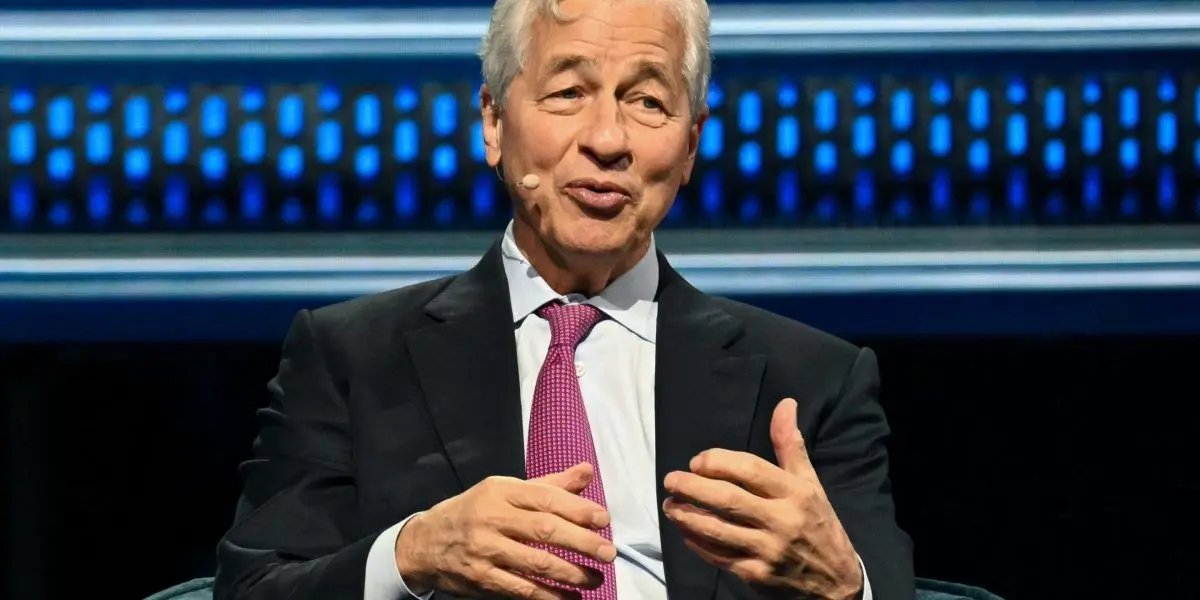
Jamie Dimon warns AI rollout may need to slow down to prevent civil unrest and job disruption
22 Jan 2026•Business and Economy
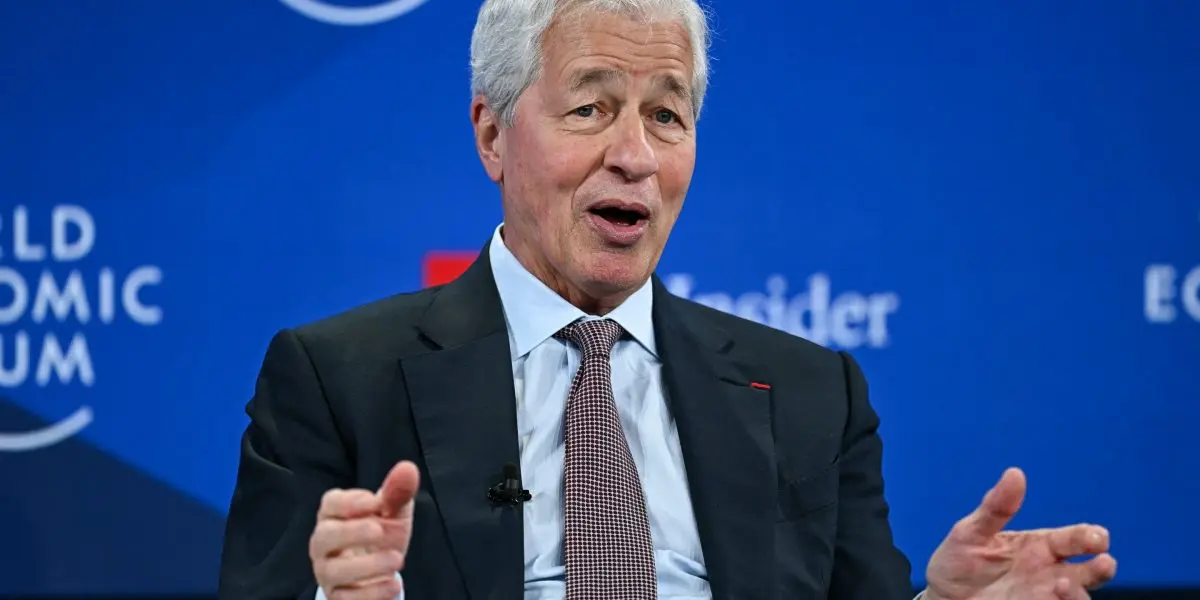
JPMorgan Chase Embraces AI to Reduce Workforce and Boost Efficiency
20 May 2025•Business and Economy
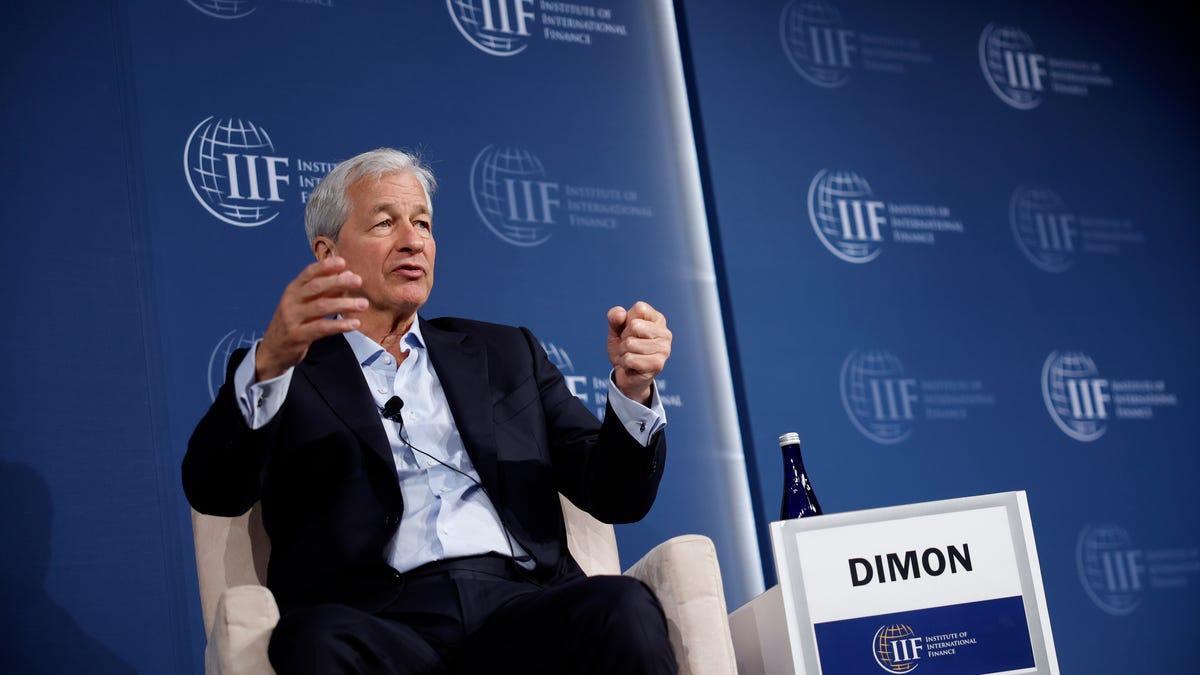
Recent Highlights
1
Google Gemini 3.1 Pro doubles reasoning score, beats rivals in key AI benchmarks
Technology

2
Pentagon Summons Anthropic CEO as $200M Contract Faces Supply Chain Risk Over AI Restrictions
Policy and Regulation

3
Canada Summons OpenAI Executives After ChatGPT User Became Mass Shooting Suspect
Policy and Regulation

